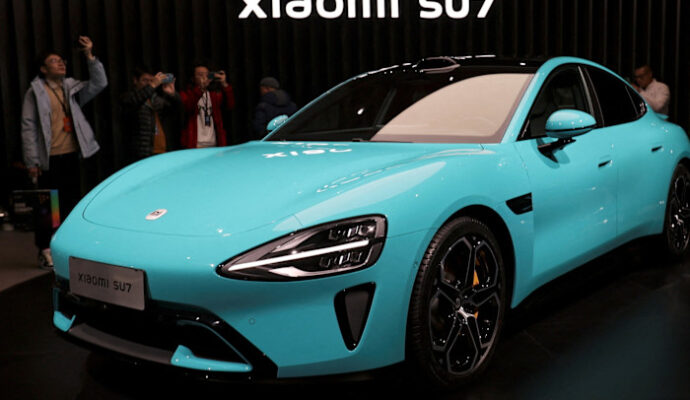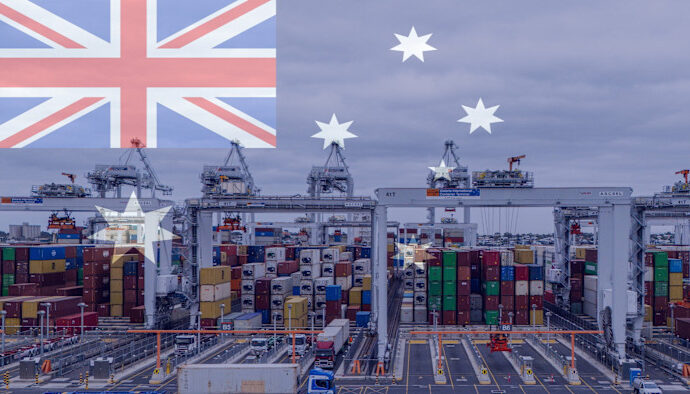Beijing’s move to restrict sales of Nvidia’s China-specific artificial intelligence processor was prompted by remarks from US commerce secretary Howard Lutnick about chip exports that officials found “insulting”.
A group of Chinese regulators have mobilised in an effort to dissuade domestic tech companies from acquiring the H20 — a watered-down processor widely used for artificial intelligence in China.
According to people with knowledge of the regulatory action, the Cyberspace Administration of China (CAC), the National Development and Reform Commission (NDRC) and the Ministry of Industry and Information Technology (MIIT) moved in response to comments made by Lutnick last month.
“We don’t sell them our best stuff, not our second-best stuff, not even our third-best,” Lutnick told CNBC on July 15, the day after the Trump administration lifted export controls, implemented in April, on H20 sales.
“You want to sell the Chinese enough that their developers get addicted to the American technology stack, that’s the thinking,” he added.
Some of China’s senior leaders found the comments “insulting”, leading to the policymakers to seek ways to restrict Chinese tech firms from buying the processors, according to two people with knowledge of the latest regulatory decision-making.
As a result, Chinese tech groups held off or significantly downsized their H20 orders, according to those with knowledge of their plans.
The moves have come as a blow to Nvidia, whose chief executive Jensen Huang last month visited Beijing and committed to stay competitive in the country despite growing geopolitical tensions with the US.
Following Huang’s warmly received trip, Nvidia received sufficient interest from Chinese clients that it told fabrication partner TSMC to reopen its H20 production lines, according to two people with knowledge of the matter.
Chinese regulators have urged more use of domestic chips in recent years, but tech giants from Alibaba to ByteDance argued that their AI development would be impaired without Nvidia’s chips, hurting China’s chance to win the technology arms race with the US.
However, some close to the tech companies said they have now become more accepting of a switch, especially for “inference”, in which AI systems respond to requests from users.
That shift came after testing and adopting chips from domestic producers led by Huawei and Cambricon at a larger scale, following Washington’s initial April ban on exporting Nvidia’s H20s.
“Lutnick’s speech gives the coalition [of regulators] one more reason to intensify its efforts to push tech firms to use China’s own chips,” said a person close to the policymakers.
A week after his comments, China’s internet regulator CAC issued so-called “window guidance” — an informal notice — to major tech firms such as ByteDance and Alibaba, citing security concerns and instructing them to halt new orders for Nvidia’s H20 chips, according to people with knowledge of the regulator’s effort.
On July 31, the agency summoned Nvidia executives over alleged “serious security issues”. In a statement, the CAC claimed that US AI experts had revealed Nvidia’s chips have location tracking and can be shut down remotely — a claim strongly disputed by Nvidia.
MIIT, China’s regulator of telecoms and software, also spoke with Chinese tech executives informally to echo CAC’s stance, according to one of the people with knowledge of the meetings.
The NDRC, China’s state planner that is in charge of the country’s drive for tech independence, then issued its own window guidance, requesting that tech firms refrain from purchasing all Nvidia chips, including the H20, said those with knowledge of the move.
NDRC has been for years tasked with promoting chip independence and helping domestic players such as Huawei to capture market share from Nvidia.
The new involvement of CAC in particular has created more pressure for Chinese tech giants to comply, even if the instructions remain informal, as any potential penalties from the watchdog would choke their daily operations.
These actions are in sharp contrast to other Chinese departments, such as the commerce and foreign affairs ministries, which have been more open to Nvidia’s business, according to industry insiders.
The two ministries, which are also in charge of trade negotiations with the US, welcomed Huang in July as a positive signal for foreign businesses and to show Beijing’s goodwill in the ongoing trade talks, the people said.
“A lot of uncertainties remain depending on trade negotiations and Washington’s next moves,” said one of the people. “The fact that all current restrictive guidance from various regulators remain informal provides some room for future changes.”
Despite some Washington officials and lawmakers seeking stronger chip curbs, President Trump has said he could potentially allow a downgraded Nvidia Blackwell chip to be exported to China in addition to H20.
Some Chinese tech companies have held off their H20 orders also because they want see if the China specific Blackwell chip, which potentially has better performance than H20, would become available, according to people with knowledge of their thinking.
Some Beijing policymakers are pushing to ban foreign chips altogether for inference, which accounts for most AI demand, according to a person recently summoned for a meeting with them.
That is unlikely to happen soon due to a shortage of domestic chip supplies, which Beijing hopes to significantly improve by next year when several advanced production lines are scheduled to launch.
China’s foreign ministry said: “As a matter of principle, science, technology, and economic and trade issues should not be politicised, instrumentalised, or weaponised. Containment and suppression will not hold back China’s development.”
Other Chinese regulators and ministries did not respond to questions for comment. Alibaba and ByteDance did not answer emails requesting comment. The US Commerce department did not immediately respond to a request for comment. Nvidia declined to comment.
Additional reporting from Michael Acton in San Francisco and Eleanor Olcott in Beijing


